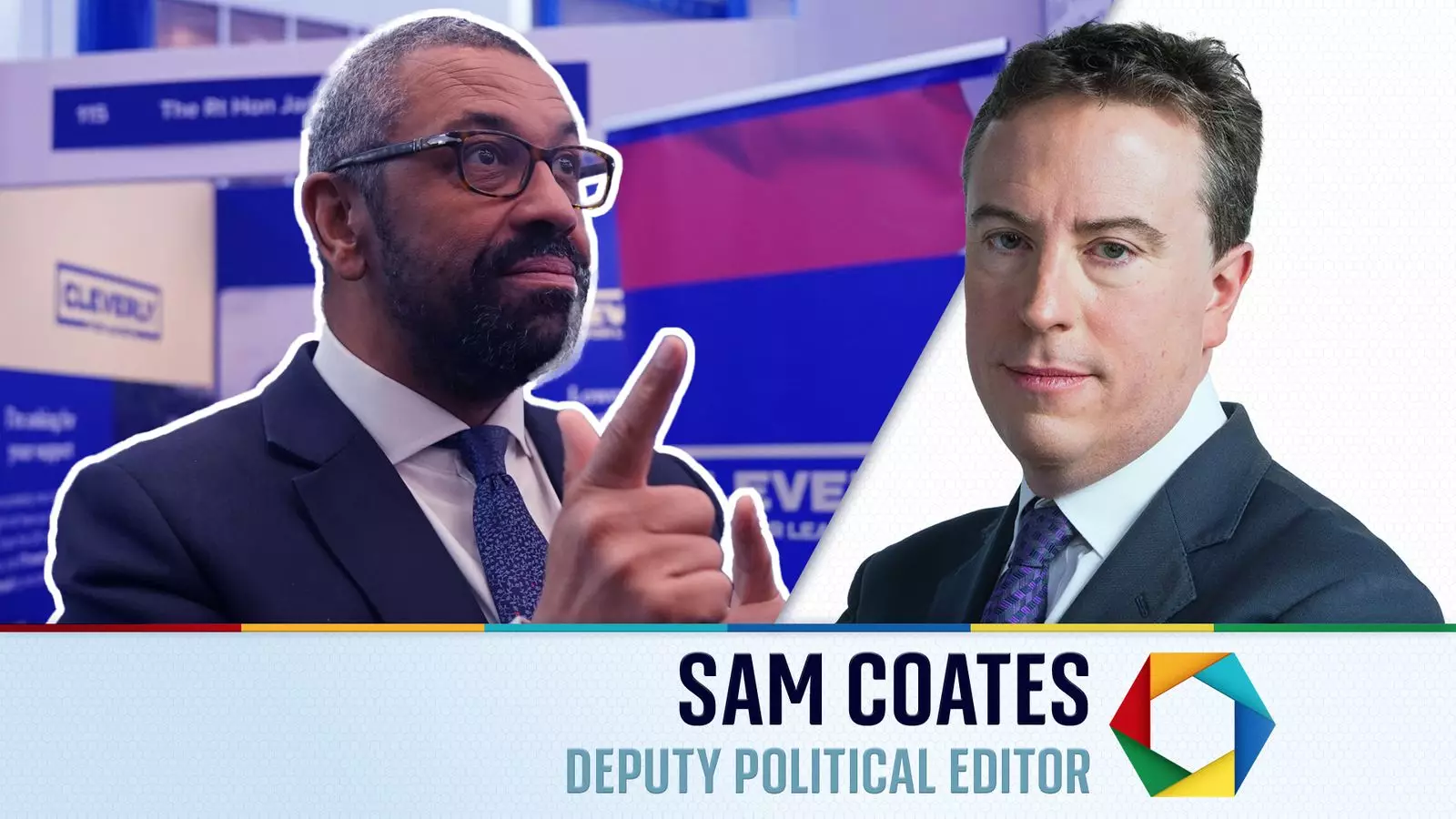The ongoing Tory leadership contest has recently been characterized by shifting tides and fluctuating support among key players. This dynamic landscape not only highlights the ambitions of various candidates but also reflects the mood of the party and its membership. The recent conference has solidified James Cleverly’s status as a frontrunner after delivering an eloquent and inspiring speech, which effectively resonated with party members. However, despite this surge in popularity, the race remains precarious and contentious, with no guarantees of success for any contender.
A Fractured Party and Competing Visions
The Conservative Party is unmistakably experiencing internal strife as candidates jostle for power and position. James Cleverly has clearly established himself as a significant player, captivating the party’s ethos through a speech designed to uplift and unify. However, his ascendance has not rendered the competition obsolete. Other candidates, notably Kemi Badenoch and Robert Jenrick, are still actively battling for their share of influence and voter support among their fellow MPs.
Badenoch’s current strategy is particularly notable as she seeks to align herself with the party’s right wing. She made a pronouncement urging the right to consolidate around her candidacy, indicating a strategic maneuver to capture the allegiance of Robert Jenrick’s supporters. However, this path is fraught with risks; Badenoch’s past association with Rishi Sunak’s administration alienated some potential allies in the European Research Group (ERG). Her approach reflects a commitment to prioritizing factional loyalty over broader appeal, a gambit that may serve her well—or backfire spectacularly as alliances are tested.
Conversely, the trajectory of Robert Jenrick appears to be on a downward slope. Recent rounds of votes from MPs indicate a drop in his support, moving from 33 votes down to 31. This shift raises questions about the effectiveness of his conference performance and the overall appeal of his campaign message. It has become increasingly evident that, despite predictions from his inner circle that he would amass 35 to 40 votes, he has not performed to the expectations set before him. The conference itself seemed to have negatively impacted his visibility and acceptance among members, which is a troubling sign for any candidate in this cutthroat environment.
In the face of these developments, the question arises: Is James Cleverly now in a position to deliberately orchestrate the final stages of this contest to ensure that he faces Jenrick in the decisive round? Polling data among Conservative members indicates that the competition between Cleverly and Jenrick is tightly contested. Cleverly’s insight into party dynamics could empower him to manipulate the voting landscape, potentially consolidating support that strategically gears the final outcome in his favor.
Of essential interest to all candidates is the question of what Conservative Party members truly desire in their next leader. YouGov’s polling has illuminated several key qualities that members prioritize, with “integrity and honesty” topping the list, followed closely by a commitment to conservative values. Surprisingly, only a minuscule 2% of respondents identified a focus on “winning the election” as a significant quality. This insight challenges candidates to not only campaign on policy but also embody a moral compass that resonates with party members on an individual level.
Ultimately, the current state of the Tory leadership contest encapsulates a fascinating interplay of ambition, strategy, and the pursuit of values. While James Cleverly finds himself at a moment of momentum, the competition’s fluidity reminds us that political fortunes can ebb and flow unexpectedly. As MPs prepare for the next round of votes and the broader party looks toward final selection, the outcome remains shrouded in uncertainty—reflective of the unpredictable nature of contemporary politics. The quest for leadership within the Conservative Party will no doubt continue to evolve, revealing much about the foundational priorities and internal divisions that define today’s Tory ethos.

Leave a Reply